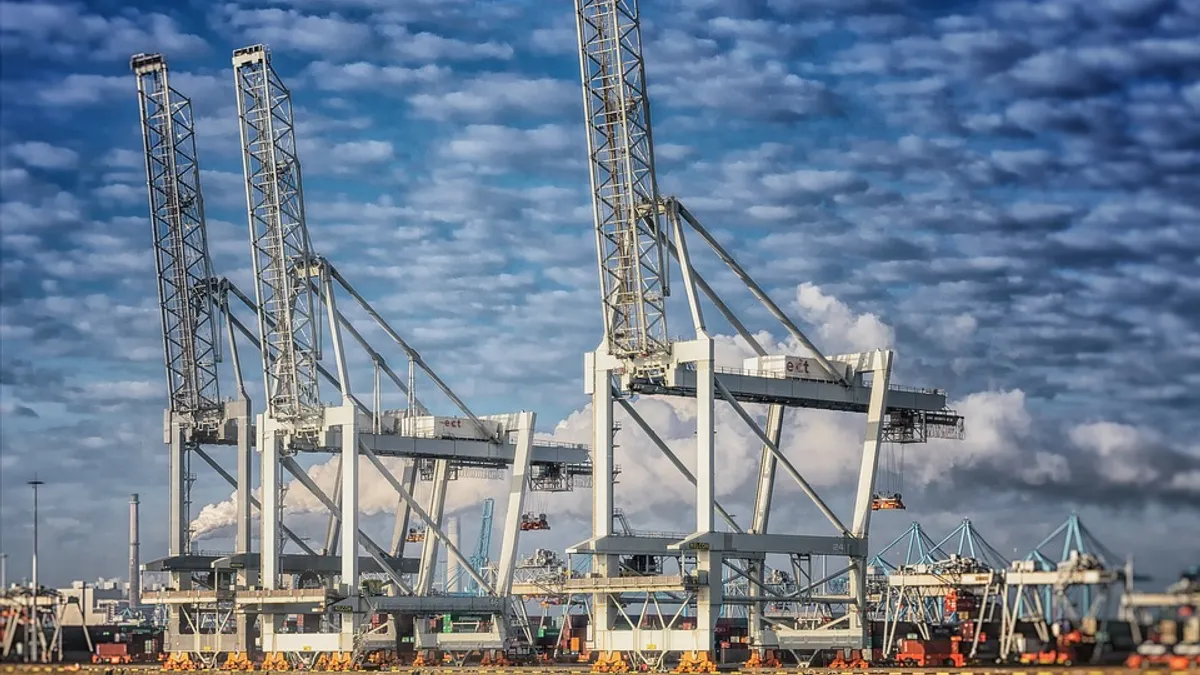Dive Brief:
- The Port of Rotterdam, along with Air Liquide, AkzoNobel Specialty Chemicals and Enerkem, has signed a development investment agreement for an advanced waste-to-chemistry plant in Rotterdam, which aims to convert both plastic and mixed waste raw materials suitable for reuse in industry, according to a press release.
- Initial investment is estimated to be €9 million, with a project total of €200 million. The project is supported by the Ministry of Economic Affairs and Climate, which is promoting new technologies to help transition to a low-carbon economy.
- Once complete, plant capacity will allow for the conversion of 360,000 tonnes of waste into 220,000 tonnes or 270 million liters of "green" methanol, which roughly equals the total annual waste from 700,000 households and reduces CO2 emissions by approximately 300,000 tonnes.
Dive Insight:
The Port of Rotterdam has long been lauded for its forward-looking projects, in everything from technology to sustainability.
With its waste-to-chemistry project, Rotterdam would play host to a plant that offers a sustainable alternative for waste incineration — the first plant of its kind in Europe.
Shippers and carriers alike have struggled with the conundrum of what to do with vast quantities of non-recyclable waste. The rise of e-commerce has produced more packaging, and in turn, more waste — but the availability of land for disposal is shrinking.
If the Port of Rotterdam and its partners are able to convert plastic to methanol, supply chains would no longer face the extra step and hassle of traveling to a waste disposal spot, increasing efficiency.
In addition, the methanol generated by the recycling project can be used as fuel for various freight modes, providing an alternative to fossil fuels and reducing carbon emissions.












